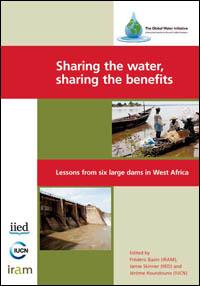Sharing the water, sharing the benefits : lessons from six large dams in West Africa

Organization(s):
This document examines the experiences of six dams built in West Africa between the late 1970s and late 1990s: the Niandouba and Confluent in Senegal, the Sélingué in Mali, and the Bagré, Kompienga and Moussodougou dams in Burkina Faso. Retrospective studies were conducted for each of these dams and their conclusions discussed in multi-stakeholder national workshops in each country. These enabled those involved to gain a better understanding of how the dams affected local peoples ways of life and the ensuing development opportunities. The lessons learned from these studies now need to contribute to ensuring improved benefit sharing in the future, particularly for those affected by the dams, while also promoting inclusive local development.
Includes bibliographic references.
Keywords:
Geographic keywords:
Broad subject:
Call number:
Record updated: 2022/05/24
